
About Andrew Cusack
 Writer, web designer, etc.; born in New York; educated in Argentina, Scotland, and South Africa; now based in London.
Writer, web designer, etc.; born in New York; educated in Argentina, Scotland, and South Africa; now based in London. read more
News
Blogs
Reviews & Periodicals
Arts & Design
World
France
Mitteleuropa
Knickerbockers
Argentina
The Levant
Africa
Cape of Good Hope
Netherlands
Scandinavia
Québec
India
Muscovy
Germany
Academica
Sorb Serf Story Shown on Silver Screen
Otfried Preußler’s retelling of old Wendish legend hits German cinemas
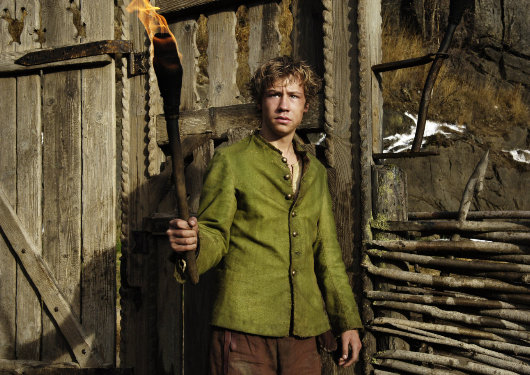
Follow your dreams! It may sound like a Hollywood cliché, but what’s a fourteen-year-old orphaned Sorb peasant to do? Currently showing in German cinemas, “Krabat” is the first film version of Otfried Preußler’s 1971 novel of an old Sorbian tale whose eponymous protagonist is a beggar boy in the eastern Saxony of the early 1700s. Krabat is plagued by dreams of an old watermill outside the tiny hamlet of Schwarzkollm, which seems to be operational though farmers never bring grain to be milled.

Above, peaceful Schwarzkollm; below, the suspicious mill.
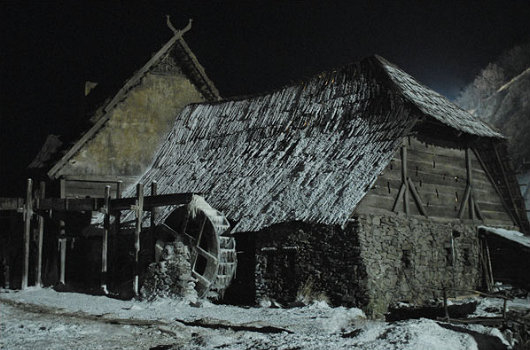
Heeding the call of his dreams, Krabat (played by David Kross) pays a visit to the mill and meets the creepy old one-eyed miller Goodman (played by Christian Redl). The miller offers to take on Krabat as an apprentice and the lad, being an orphan and not having anything better to do, gladly agrees.
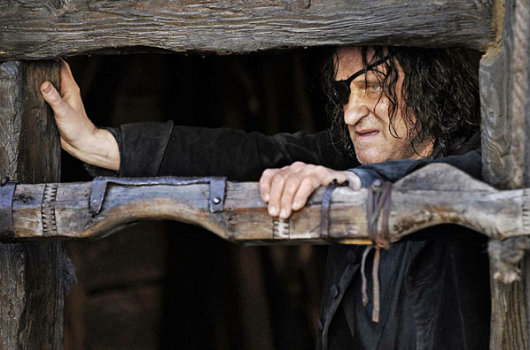
Joining the secret brotherhood of journeymen and apprentices, it turns out this guild’s skill is not milling but magic — and black magic at that.
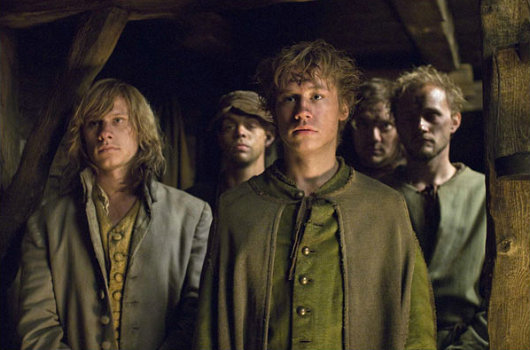
Bereft of kin, Krabat now finds himself a new family in the form of his fellow apprentices and the brotherhood’s craft seems, at first, innocent enough: learning to turn himself into a raven and that sort of thing.
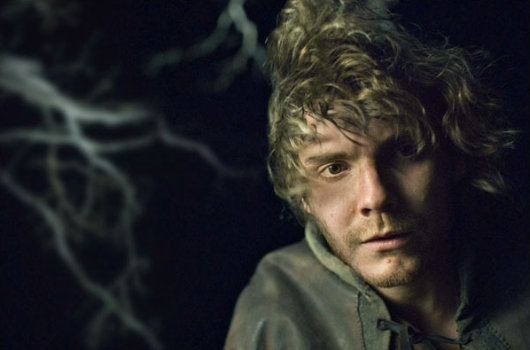
The senior apprentice Tonda is played by Daniel Brühl, best known to international audiences as the main character in the excellent depiction of Ostalgie “Goodbye Lenin!”, and as the German officer Horstmayer in the muddle-headed First-World-War flick Joyeux Noël. (Perhaps worthy of mention is his small role as the brother of Franka Potente’s character in The Bourne Ultimatum).
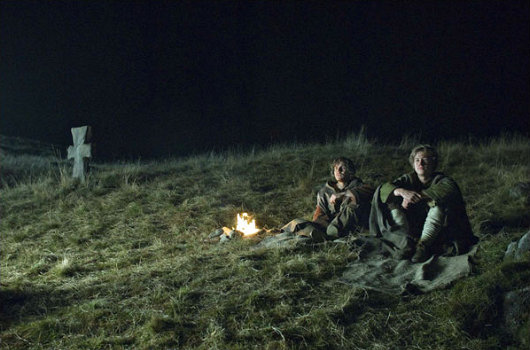
Tonda becomes a best friend and older-brother figure to Krabat but mysteriously dies in an ostensible accident on New Year’s Eve during Krabat’s first year at the mill. The lad’s raised suspicions are only confirmed by the death of another apprentice friend exactly a year later.
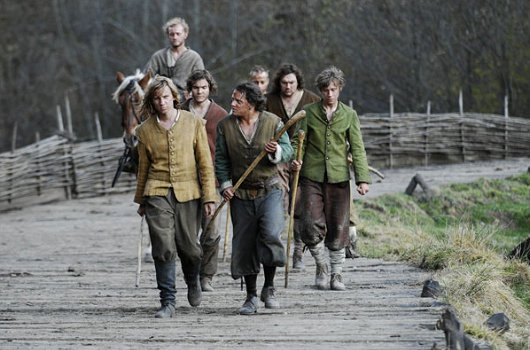
Things get a little crazy from thereon in, as Krabat is determined to exact retribution for the death of his friends, and gets help from a local girl who sings in the church choir (played by Anna Thalbach, who’s also in the much-discussed Der Baader Meinhof Komplex currently showing).
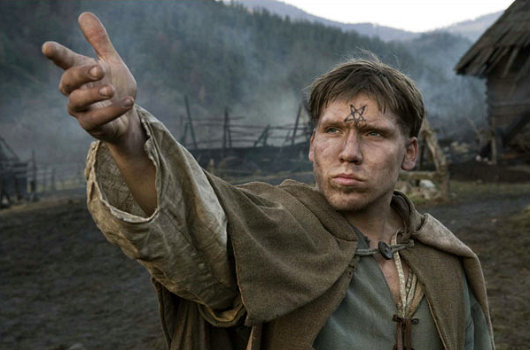
While the tale is centuries old, Preußler’s novel is certainly intended to speak to readers of the twentieth century and beyond. Preußler, a native of Reichenberg in Bohemia, was in his twenties during the Second World War and served as an officer in the Wehrmacht fighting the Soviets on the Eastern Front. Krabat deals with young people’s complicated fascination with an alluring evil power, and posits that only Love is strong enough to overcome Evil. These larger themes aside, this might be the first major motion picture to depict life among the Sorbs of old, an intriguing and interesting people who seem to fade further and further into the pages of history with each passing generation.
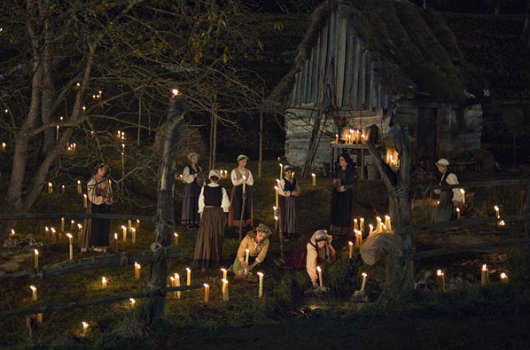
Easter Eve among the Sorbs.
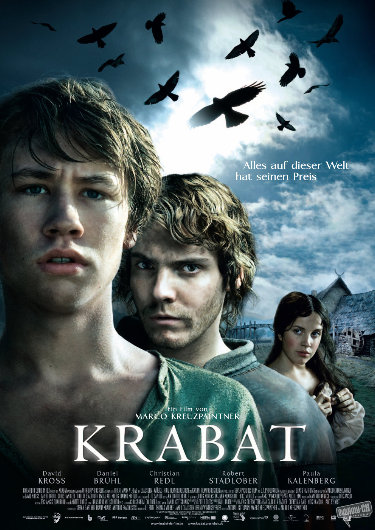
Krabat: “Everything in this world has its price.”
Search
Instagram: @andcusack
Click here for my Instagram photos.Most Recent Posts
- Burns Tower April 19, 2024
- Patrick in Parliament March 18, 2024
- Articles of Note: 13 March 2024 March 13, 2024
- Cambridge March 9, 2024
- Taken on Trust March 4, 2024
Most Recent Comments
Book Wishlist
Monthly Archives
Categories



How did you manage to see it? I don’t see that it’s playing anywhere in the U.S. Sounds interesting!
Haven’t seen it, alas, but I know the story (it’s been translated into English twice and into thirty other languages), so this post is merely about the film rather than being a review thereof. (Hence no “See this film!” or “This film is awful!”).
Also, the film compresses the three-year chronology of the book into two years and eliminates a subplot revolving around one of the other apprentices.
Thanks, Andrew. I had no idea there was a film version of Krabat. I’ll try and get it as soon as it’s available on DVD.
A goodly portion of the Wends are Catholic. I wonder if the film will touch upon this curious fact (surrounded as they are by Protestants) or will this be considered an irrelevance?
Victor Klemperer, the Dresden diarist, had a Wendish servant girl who he loved for her beauty and goodness.
Thanks, Andrew! I wasn’t aware of this film. Sounds and looks interesting.
Looks very interesting; I will definitely have to see it. In the meantime, I shall look for the book.